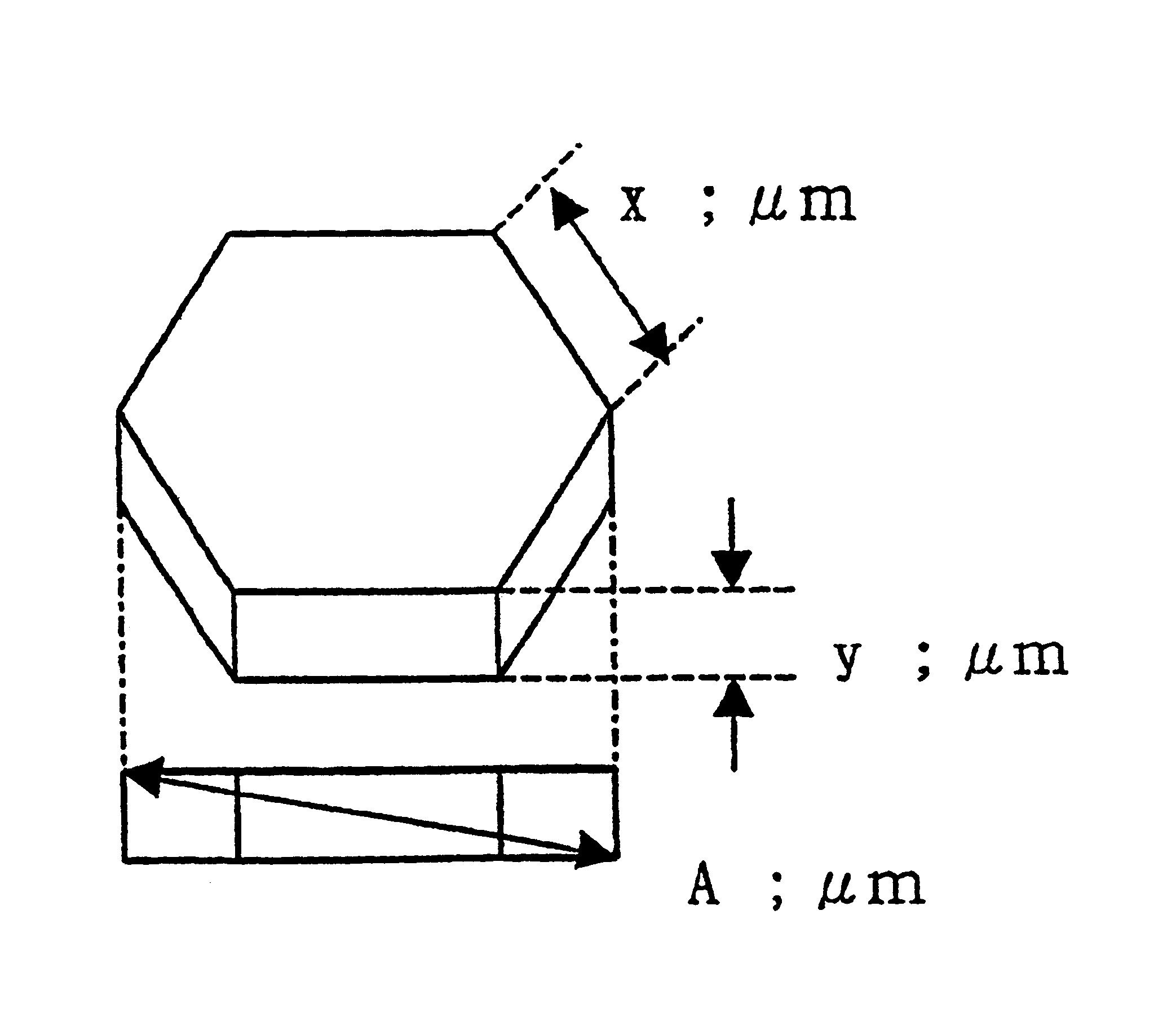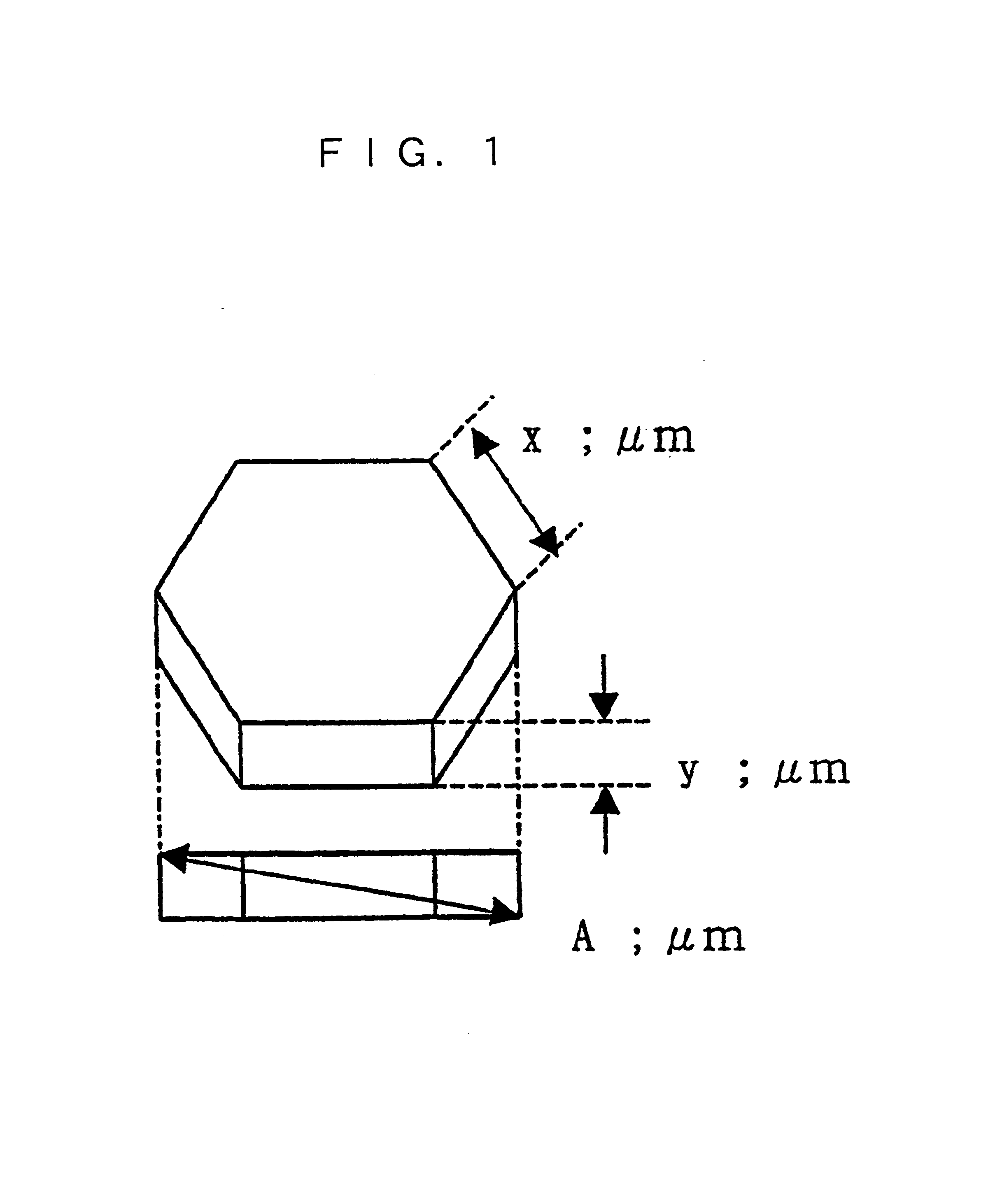Magnesium hydroxide particles, process for producing the same, and resin composition containing the particles
- Summary
- Abstract
- Description
- Claims
- Application Information
AI Technical Summary
Benefits of technology
Problems solved by technology
Method used
Image
Examples
example 1
An autoclave was charged with 400 ml of a magnesium chloride aqueous solution (Wako Purechemical Ind., Ltd.) adjusted to a concentration of 0.5 mol / L and 0.2 mol %, based on the magnesium chloride, of boric acid (supplied by BORAX), and while the mixture was stirred, 121 ml of a 3N sodium hydroxide solution was dropwise added. The mixture was allowed to react at room temperature (25.degree. C.) for 30 minutes, to obtain a suspension of magnesium hydroxide particles.
The above suspension was hydrothermally treated under the following conditions and dehydrated, then followed by washing with water (200 ml) and drying at 105.degree. C. for 24 hours, to give magnesium hydroxide particles.
Samples of magnesium hydroxide particles obtained under hydrothermal treatment conditions are referred to as Sample A-1 and Sample A-2.
example 2
An autoclave was charged with 400 ml of a magnesium chloride aqueous solution (Wako Purechemical Ind., Ltd.) adjusted to a concentration of 0.5 mol / L and 1.7 mol %, based on the magnesium chloride, of boric acid (supplied by BORAX), and while the mixture was stirred, 121 ml of a 3N sodium hydroxide solution was dropwise added. The mixture was allowed to react at room temperature (25.degree. C.) for 30 minutes, to obtain a suspension of magnesium hydroxide particles.
The above suspension was hydrothermally treated under the following conditions and dehydrated, then followed by washing with water (200 ml) and drying at 105.degree. C. for 24 hours, to give magnesium hydroxide particles.
Samples of magnesium hydroxide particles obtained under hydrothermal treatment conditions are referred to as Sample B-1 and Sample B-2.
The following Table 1 shows the average secondary particle diameter, the BET specific surface area, the particle size distribution width and the aspect ratio of each of th...
example 3
Magnesium hydroxide particles were obtained by carrying out hydrothermal treatment in the same manner as in Comparative Example 2 except that 0.2 mol %, based on magnesium chloride, of boric acid (supplied by BORAX) was added to a magnesium chloride aqueous solution (ion bittern).
Table 2 to be described later shows the average secondary particle diameter, the BET specific surface area, the particle size distribution width and the aspect ratio of the obtained sample.
PUM
| Property | Measurement | Unit |
|---|---|---|
| interior angles | aaaaa | aaaaa |
| average secondary particle diameter | aaaaa | aaaaa |
| average secondary particle diameter | aaaaa | aaaaa |
Abstract
Description
Claims
Application Information
 Login to View More
Login to View More - R&D
- Intellectual Property
- Life Sciences
- Materials
- Tech Scout
- Unparalleled Data Quality
- Higher Quality Content
- 60% Fewer Hallucinations
Browse by: Latest US Patents, China's latest patents, Technical Efficacy Thesaurus, Application Domain, Technology Topic, Popular Technical Reports.
© 2025 PatSnap. All rights reserved.Legal|Privacy policy|Modern Slavery Act Transparency Statement|Sitemap|About US| Contact US: help@patsnap.com


